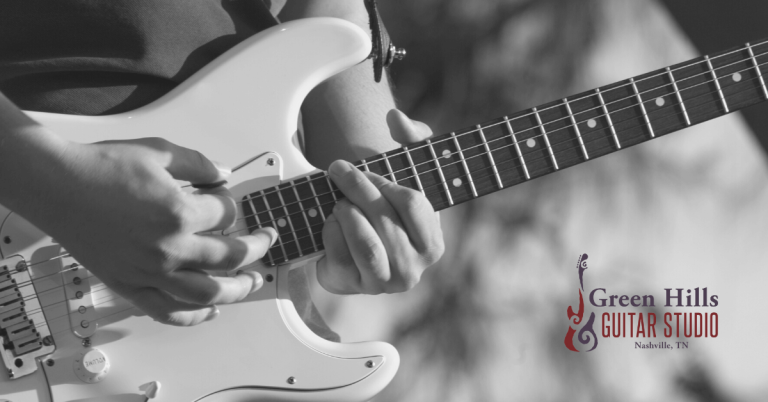From Resolution to Reality: Learning Guitar and Staying Inspired Year-Round
The New Year is a time for fresh starts, and for many, learning guitar is at the top of the list. With its unique blend of creativity and challenge, the guitar appeals to those looking for a skill that’s both fulfilling and long-lasting.
Whether your goal is to play your favorite songs, compose original music, or simply enjoy the process of mastering an instrument, the guitar offers endless opportunities for growth and expression.
But turning a resolution into reality takes more than enthusiasm—it requires a thoughtful approach, consistent effort, and a steady source of inspiration. Whether you’re picking up a guitar for the first time or aiming to refine your skills, this guide is here to help you stay motivated and make meaningful progress all year long.
Start With Clear, Achievable Goals
One of the most common reasons resolutions fail is the lack of specific, actionable goals. When learning guitar, having clear objectives ensures your practice sessions have purpose and direction, keeping you motivated and on track.
Break Down Your Goals Into Manageable Steps
Big goals can feel overwhelming without smaller steps to guide you. Breaking your objectives into manageable milestones makes even ambitious goals feel approachable. Here’s how:
Beginner Goals:
- Learn basic chords like G, C, D, and Em, focusing on smooth transitions
- Play a simple song, such as “Knocking on Heaven’s Door” or “Stand by Me”
- Practice basic strumming patterns like downstrokes, upstrokes, and rhythm combinations
Intermediate Goals:
- Develop barre chord proficiency with songs like “Hotel California” or “Shape of You”
- Learn pentatonic and major scales to expand your lead guitar skills
- Play a favorite song from start to finish with consistent timing and expression
Advanced Goals:
- Compose a song by combining chord progressions, melodies, and lyrics
- Learn a complex solo, such as “Impossible Germany” or “Cliffs of Dover”
- Improve improvisation by jamming over backing tracks in various keys and styles
The Power of Micro-Goals
Small wins build big momentum. Setting micro-goals allows you to celebrate progress regularly, which keeps the learning process fun and rewarding. For instance:
- Daily Goal: Spend 10 minutes practicing chord transitions between G, D, and C
- Weekly Goal: Learn how to play the intro to a favorite song
- Monthly Goal: Record yourself playing a complete piece to review progress
These bite-sized objectives provide quick victories, fueling your motivation and preparing you for larger challenges.
Focus on SMART Goals
To make your goals even more effective, use the SMART framework:
- Specific: Clearly state what you want to achieve (e.g., “Learn the 12-bar blues in A“)
- Measurable: Track progress with benchmarks (e.g., “Play at 80 BPM”)
- Achievable: Set objectives that match your skill level
- Relevant: Focus on goals that match your musical interests or overall aspirations
- Time-bound: Add deadlines for accountability (e.g., “Master this by the end of the month”)
The Psychological Benefits of Clear Goals
Every milestone triggers a sense of accomplishment, releasing dopamine and reinforcing your desire to continue. This positive feedback loop transforms practice from a chore into a fulfilling experience. Even small successes build confidence, helping you stay motivated and excited about your guitar journey.
By creating clear, actionable goals, you’ll turn your resolution into a lasting passion. Start small, track your wins, and watch your confidence grow as you progress.
Track Your Progress to Stay Motivated
Seeing how far you’ve come is one of the most rewarding parts of learning guitar. Tracking your progress not only keeps you accountable but also reminds you of your achievements, helping you stay committed even when the journey feels challenging. It’s a simple yet powerful way to build confidence and momentum.
Effective Ways to Track Your Guitar Progress
1. Keep a Practice Journal:
A practice journal is a great tool for documenting your journey. Use a notebook or digital document to log your sessions, including:
- The exercises or songs you practiced
- How much time you spent
- Challenges you encountered and breakthroughs you achieved
Regularly reviewing your journal can reveal patterns in your progress and highlight areas for improvement. Seeing your growth over weeks and months is a strong motivator to keep going.
2. Take Private Lessons for Accountability and Guidance:
Working with an experienced guitar instructor can make all the difference. Private lessons provide expert guidance, tailored feedback, and accountability to ensure you stay on track. Your teacher can help you:
- Address specific weaknesses
- Set realistic, achievable goals
- Build confidence with constructive support
Having an experienced guitar teacher invested in your success is an invaluable way to stay motivated.
3. Leverage Online Learning Resources:
Online tools, like the Green Hills Guitar Studio All Access Pass, offer flexible and convenient ways to learn. With unlimited access to courses, tutorials, and lesson materials, these resources allow you to:
- Reinforce what you’ve learned in private lessons
- Explore new techniques and styles at your own pace
- Supplement your practice with structured guidance anytime, anywhere
Combining private lessons with online resources gives you the best of both worlds—expert feedback and the freedom to explore on your own.
4. Record Yourself Regularly:
Recording your practice sessions is one of the most tangible ways to track your progress. It helps you assess areas like timing, tone, and overall performance. Here’s how to get started:
- Record yourself playing a song, riff, or exercise at least once a month
- Save each recording to a folder or playlist for easy comparison
- Reflect on how your playing has improved over time
These recordings not only highlight your growth but also serve as a personal archive of your progress—a reminder of how much you’ve accomplished.
Stay Inspired by Embracing Variety
Repetition can drain the excitement from your practice routine, but variety is the key to keeping your passion alive. Expanding your horizons not only challenges you as a guitarist but also opens doors to new creative possibilities.
Learn From Guitar Players Who Embraced Change
Great musicians often evolve by stepping into unfamiliar musical worlds, and their journeys can inspire your own. For example:
- Gary Clark Jr. fuses the raw power of blues with rock, soul, and hip-hop, creating a versatile and boundary-pushing sound.
- John Mayer continually reinvents himself, moving from pop-rock to blues and Americana, demonstrating how new styles can energize your playing.
- Mark Knopfler built his career on rock’s fingerpicking tradition but later embraced genres like Celtic folk and country, broadening his creative palette.
By following their example, you can breathe fresh energy into your practice and discover new approaches to the guitar.
Explore New Genres and Techniques
Every genre offers unique rhythms, chords, and techniques that can transform how you play. Whether it’s the soulful bends of blues, the intricate fingerpicking of folk, or the rich harmonies of jazz, trying something new ensures your practice sessions stay exciting and rewarding.
In addition to exploring genres, incorporating new techniques can push you outside your comfort zone. For example:
- Fingerpicking: Adds a more intimate and dynamic touch to your playing
- Slide Guitar: Creates haunting, expressive tones
- Alternate Tunings: Unlocks new chord shapes and progressions
Each technique you explore adds depth to your skill set and expands your musical vocabulary.
Find Inspiration Through Gear
Sometimes, a simple change in equipment can reignite your enthusiasm.
- Switch between electric and acoustic guitars to shift your focus and style
- Experiment with pedals or effects to discover fresh tones and textures
- Use guitar accessories like capos to create entirely new sounds from familiar songs
The right gear can spark creativity and make your instrument feel brand new, encouraging you to explore and experiment.
Seek Out Inspiration Everywhere
Inspiration is the fuel that drives your guitar journey. It can come from hearing a new song, watching a performance, or connecting with other players. Take time to:
- Seek out music that moves you
- Jam with friends or join online communities to share ideas
- Reflect on what first inspired you to pick up the guitar
By embracing variety and seeking out fresh inspiration, you’ll not only stay motivated but also develop a deeper, more personal connection to your instrument. Stay curious, keep experimenting, and let your guitar journey lead you to exciting new places.
Find Inspiration in Community
Learning guitar can sometimes feel like a solo journey, but connecting with others can transform the experience. Engaging with a community of musicians provides motivation, accountability, and fresh perspectives that can reignite your passion for playing.
1. Take Guitar Lessons for Expert Guidance
Working with a skilled instructor ensures you’re building proper techniques and staying on track. A teacher not only provides personalized feedback but also helps you set achievable goals and stay accountable. Private lessons offer a supportive environment where you can grow at your own pace while gaining the confidence to tackle challenges.
2. Join Groups or Online Communities
Participating in local jam sessions or joining online forums is a great way to share progress, ask questions, and celebrate milestones with like-minded guitarists. These communities often inspire creativity by exposing you to new styles, techniques, and ways of thinking about music.
- Local Groups: Attend open mics or group classes to meet other players and practice performing.
- Online Communities: Platforms like Reddit’s r/guitar, Facebook groups, YouTube, or Discord servers connect you with musicians worldwide who are eager to share tips, provide feedback, and cheer you on.
3. Collaborate with Other Musicians
Playing with others is one of the most effective ways to improve your timing, improvisation, and overall musicianship. Collaborating on a song, improvising in a jam session, or simply trading ideas can challenge you to adapt and grow in ways solo practice cannot.
4. Rediscover Your ‘Why’ Through Connection
Sharing your journey with a community can remind you why you started playing guitar in the first place. Seeing others’ passion, progress, and enthusiasm is often contagious and can help you push through plateaus or reignite your motivation when it wanes.
Whether it’s through lessons, group sessions, or online connections, finding your tribe of musicians can transform learning guitar into a shared adventure filled with encouragement and inspiration.
Celebrate Milestones and Reflect on Progress
Every small victory on your guitar journey deserves recognition. Whether it’s mastering a tricky chord change, playing a song all the way through, or improving your timing, taking time to celebrate these achievements can boost your confidence and motivation.
1. Celebrate Your Wins
Acknowledging progress, no matter how small, creates a sense of accomplishment that propels you forward. Here are a few simple ways to celebrate milestones:
- Treat yourself: Invest in new guitar accessories like strings, a capo, or even a songbook
- Share your progress: Play for friends or family to showcase what you’ve learned
- Document the moment: Record your accomplishment and save it as a reminder of your growth
Recognizing these moments reinforces the idea that your efforts are paying off and keeps you excited about what’s next.
2. Reflect on Your Growth
Equally important as celebrating victories is taking time to reflect on your progress. Regular reflection helps you identify strengths, areas for improvement, and new goals. At the end of each month or quarter, ask yourself:
- What have I learned? Reflect on specific skills, techniques, or songs you’ve mastered.
- Where do I need improvement? Pinpoint challenging areas like barre chords, timing, or improvisation.
- What’s my next goal? Set fresh objectives to keep your momentum going.
3. Adapt Your Practice Plan
Progress isn’t always linear, and that’s okay. Some techniques may take longer to master, while others come quickly. Use reflection as a tool to adjust your practice plan, focusing on what excites you while addressing areas that need more work.
4. Enjoy the Journey & Avoid Burnout
Ultimately, playing guitar is about more than hitting milestones—it’s about enjoying the process. Each step, whether small or significant, brings you closer to becoming the guitarist you want to be. By celebrating your accomplishments and reflecting on your growth, you’ll stay motivated and inspired to keep reaching for the next level.
The Coda
Learning guitar is more than just mastering chords and scales—it’s a journey of creativity, persistence, and self-discovery. Along the way, you’ll face challenges, celebrate victories, and uncover new passions you never expected.
The key is to stay inspired, set clear goals, and embrace the process. Every step brings you closer to becoming the guitarist you want to be. Remember that progress is not always linear, and plateaus are simply opportunities to grow.
Celebrate your milestones, seek out fresh inspiration, and connect with others who share your passion for music.
At Green Hills Guitar Studio, we’re here to support you every step of the way. From personalized guitar lessons to the All Access Pass, we provide the tools and guidance to help you make meaningful progress and keep your love for the guitar alive.






